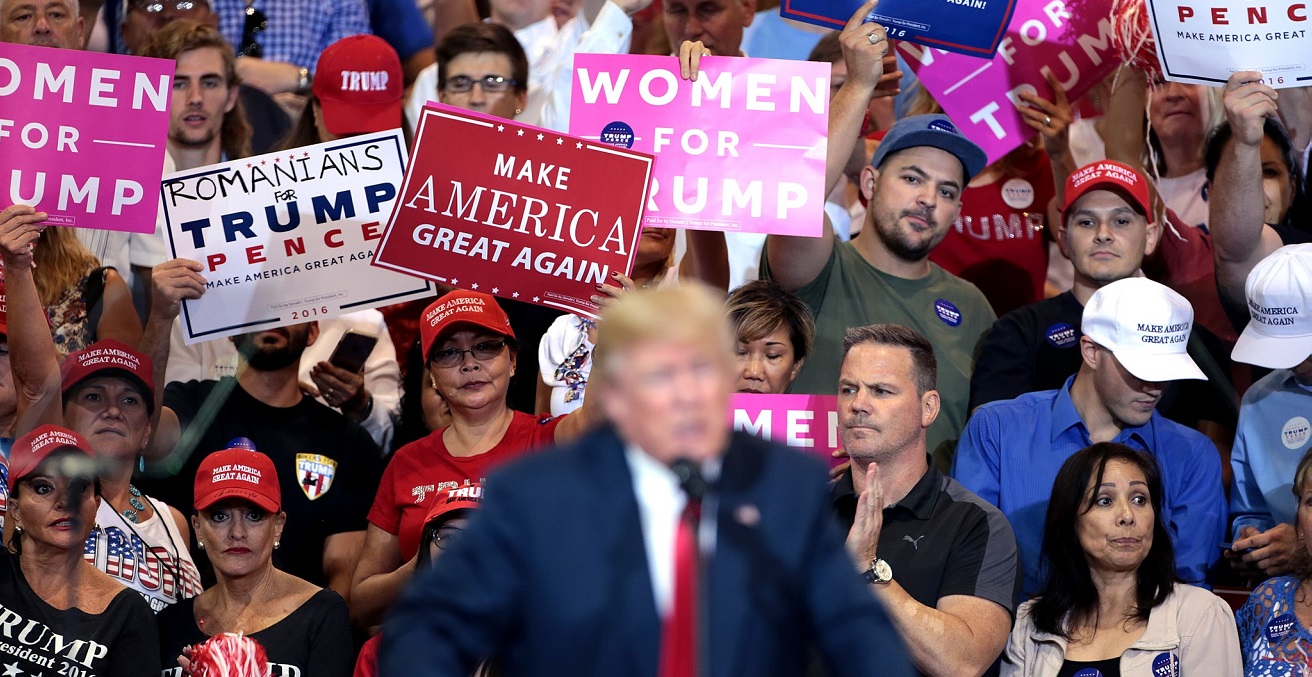The Election Delusion

The forces of political populism in the United States are too entrenched to be expunged by the defeat of Donald Trump on 3 November 2020. The issue is systemic, not a consequence of leadership idiosyncrasies.
As November 3 draws ever nearer, commentators are engaging more than ever with the narrative that a Trump defeat would end this aberrant chapter in American history and rectify the course of American politics as if Trump had never occupied the White House. As hopeful as that may be, such narratives discount the underlying structural factors behind the rise of right-wing populism in the United States, and falsely portray Donald Trump as the mainstay of a political phenomenon that he neither began nor controls.
The fixation in the political discourse on the personality of populist leaders has obscured the fundamental fact that populists are never the source of the politics they assert. They are the beneficiaries of them. Their electoral standing hinges upon their ability to exploit the gap in policy direction between the political leaders and their constituents.
It is an intrinsic feature of democracies to spur populist movements whenever the discontents of the populace are either ignored or marginalised by the political mainstream. Yet it is only when the discontents metastasise across a large segment of the population, and where the political elite remains unresponsive, that populist elements are brought out of the fringes of politics and into positions of power. What has happened over the last decade within liberal democracies across the globe, is that the platform of the populist far right, espoused by fringe political movements since the early 1990s, has at last garnered a constituency large enough to affect the political mainstream.
The Trumpism trinity of nativism, economic protection, and isolationism was not conceived in 2015. It’s genesis, rather, was the 1992 Republican presidential primary, when the American public heard for the first time from a presidential candidate that free trade had ravaged the American worker, that immigration was posing an economic and cultural threat to the nation, and that it was high time American allies underwrote their own security. The candidate was Patrick Buchanan. His nativist and protectionist platform, like those of his populist counterparts across the Atlantic, marked the first political backlash against the social and economic dislocations of hyper-globalisation.
It took 24 years for a message that was on the fringe of American politics to attract a constituency large enough to secure a victory in the White House. These 24 years witnessed the economic and social vicissitudes of deindustrialisation, stagnant wages, mass migration, and anxieties over the changing social composition of the country worsen to such an extent that the electorate foisted a populist to the national leadership.
That electorate will continue to be there after November 3. The growing nativist tendencies of the conservative base have been politically ascendant since the emergence of the Tea Party movement in 2010. It was the eminent political sociologist Theda Skocpol who revealed as early as 2011 that amongst all the conservative items that animated the movement, policing immigration and securing the border were the predominant issues. Indeed it was a warning sign of what was brewing at the grassroots when Mitt Romney (an erstwhile moderate Republican) sought to outbid the other candidates on his intransigence to amnesty and grants for the children of illegal immigrants in the 2012 Republican primaries.
The gap that once existed between the Republican leadership and the Republican base on the social issues of immigration and the affirmation of conservative values was closed in 2016. Even moderate Republicans whose personal inclination would be to return to the pre-2016 Republican Party would find it politically perilous to do so. That Trump has consistently enjoyed the highest in-party approval ratings since Eisenhower at 87 percent signifies the alignment of his agenda with the dominant ideological orientation of the contemporary Republican Party.
Looking at the other side of the populist electoral coalition, the conditions of economic insecurity for the economically disaffected have not only persisted but have been further exacerbated by the devastation of the pandemic. The tumultuous economic climate precludes any shift back to the pre-Trump consensus on free trade and non-interventionism in markets.
A Biden victory may relieve the nation of the outlandish and mercurial presidency of Donald Trump, yet the Republican Party that Biden will face is Trumpism institutionalised. With Trump gone and his agenda entrenched within the Republican Party, new leaders will emerge seeking to succeed Trump. They are likely to present and prosecute Trumpism in a far more disciplined and judicious manner than was ever possible under Trump himself. Absent radical steps by a Biden administration to address the social and economic disparities amongst the populace, the pathologies of politics that gave rise to Trumpism, will continue to engulf the American political landscape, with social and cultural fissures continuing to sow the seeds of intractable discord and polarisation.
Political sociologists and economists have long warned that liberal democracies are by their internal dynamics averse to wide economic and cultural fissures amongst the populace. The stability, and indeed the liberal character, of a liberal democracy depends upon a consensus of values that sets limits to partisanship. A consensus of values that can only be sustained by low levels of social and economic disparity amongst the citizenry is eroded by the prevalence of large scale economic and social divisions.
Tragically, the United States is already exhibiting those ailments that political thinkers such as Samuel Huntington and John Gray warned of since the 1990s. They cautioned that if the economic and social divides of the country were left unresolved, a tribalisation along class and cultural lines would occur, giving rise to a partisanship that renders the political process to one of domination rather than alternation in office, where political parties increasingly reflect fixed communal identities, ethnic and religious, and where the notion of a loyal opposition is undermined as each side portrays the other as a threat to national cohesion.
The Trump phenomenon has always been larger than one figure. Until the structural issues that engendered its rise are alleviated, America will find itself contending with Trumpism in one guise or another.
Roman Darius writes on politics, world affairs and the history of ideas. His work has appeared in leading publications and policy institutes in the United States and Australia. Currently a Juris Doctor candidate based in Melbourne, he has a background in finance and economics and a Master of Middle Eastern and Central Asian Studies from the Australian National University, where he was awarded the Khalifa Bakhit Al-Falasi prize for his work and research project titled “Socio-Economic Coalitions and Democratisation: A Causal Analysis of Turkey’s Restricted Democracy.”
This article is published under a Creative Commons Licence and may be republished with attribution.





